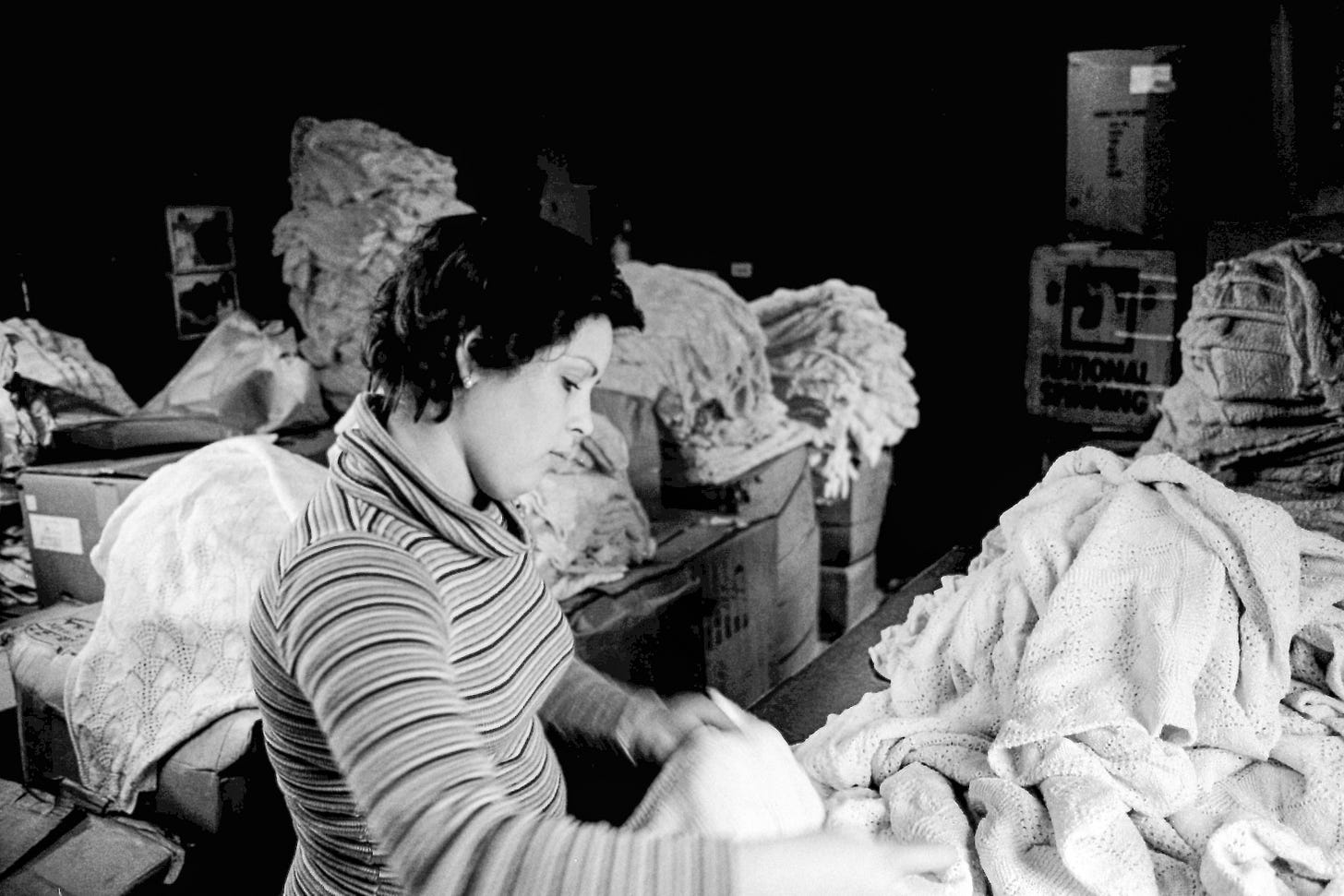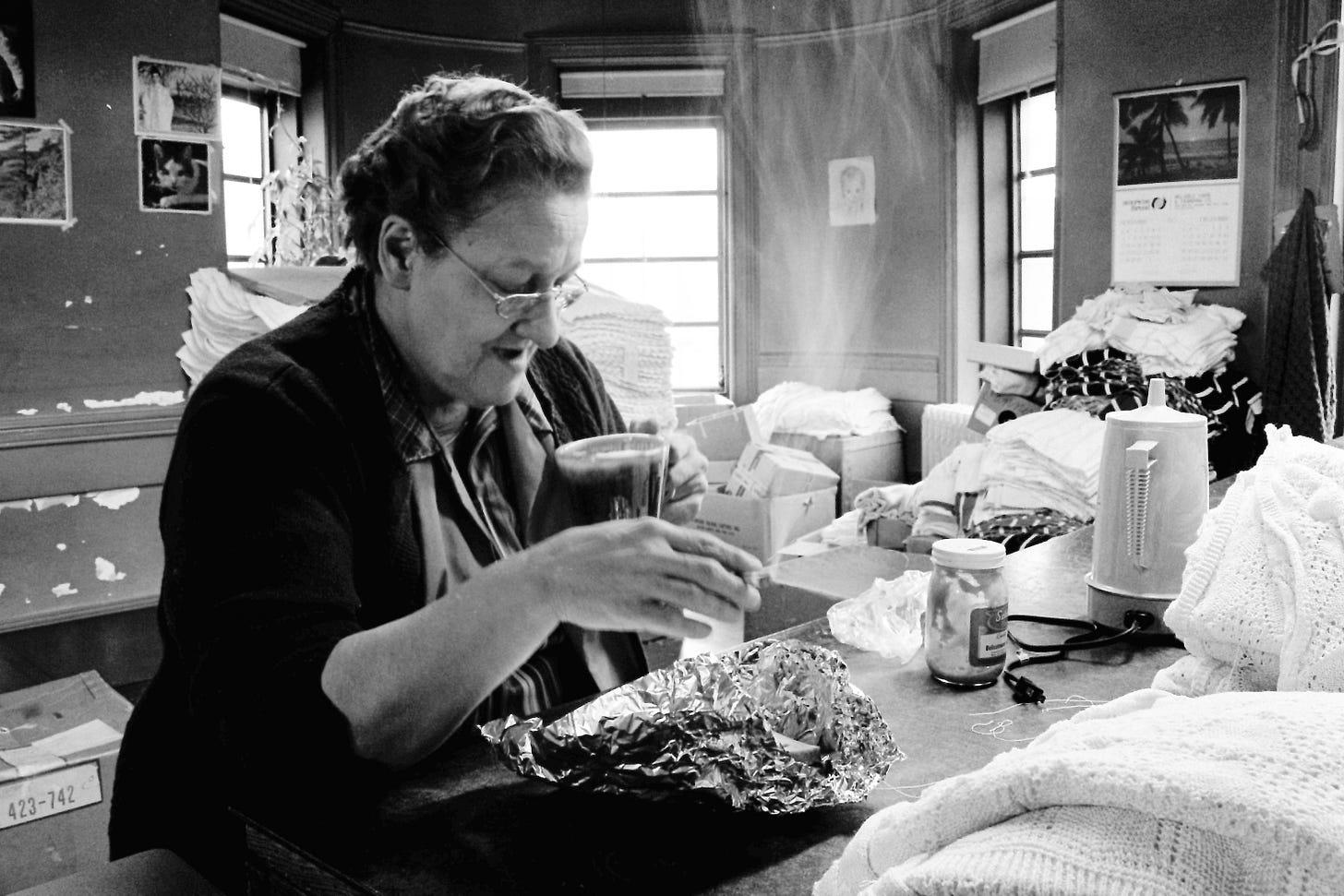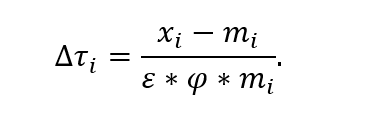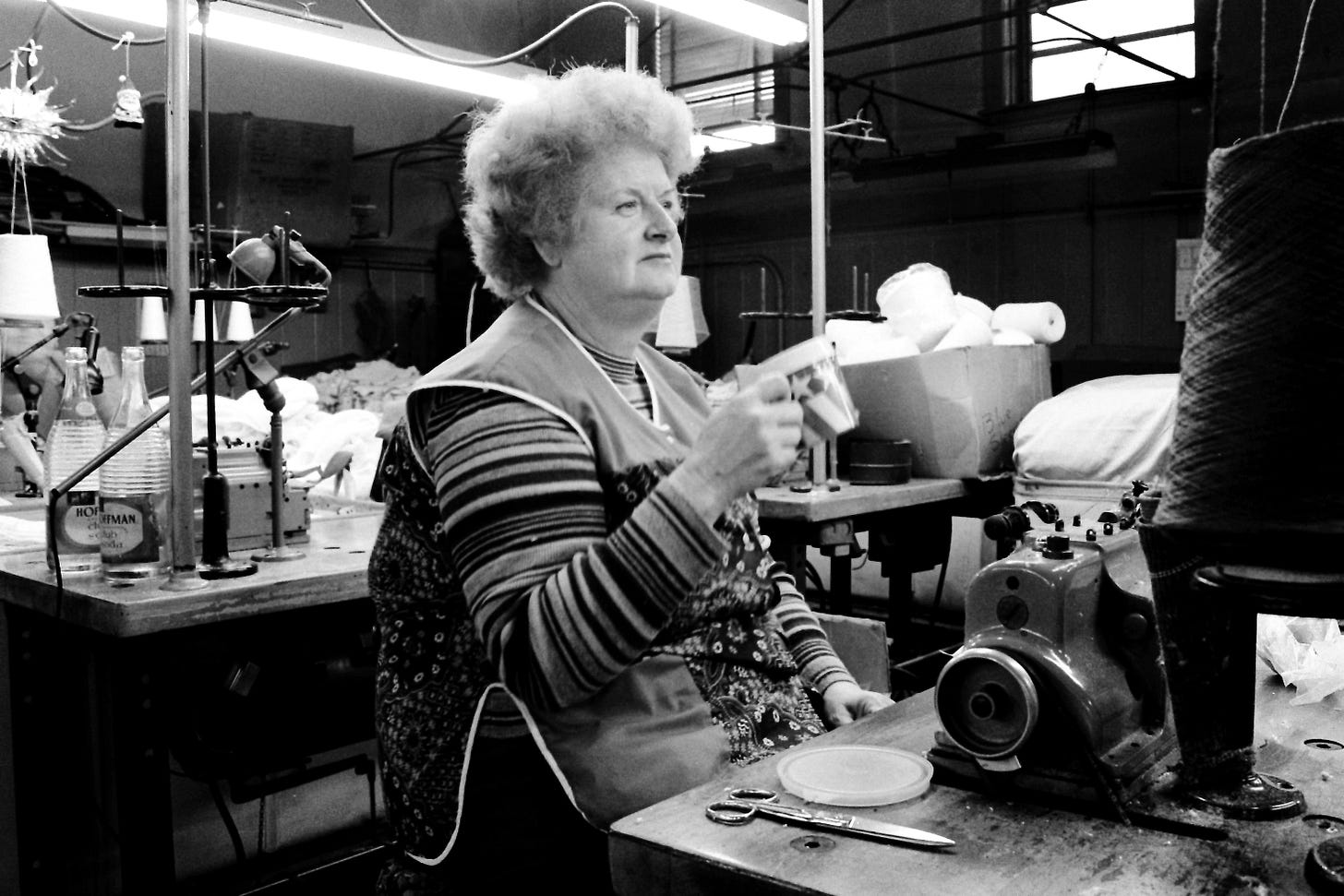A Tariff Exception for Natural Wine
An article
Welcome and thank you for being here.
Believe it or not, the tariffs have landed as promised and us sleepy, U.S. importers are on the hook for 20% of the value of any product that crosses the border of these United States. Maybe that number will go up or down (most notably, an existential 200% figure for wine been floated to much chattering molars), but pay we shall. Those with eyes and ears will have noticed the subsequent hemming and hawing, guffawing, pearl clutching, and the rest of the present-perfect, timeline reactions.
A tariff is a simple tax, a kind of self-sanction meant to discourage the importation of international goods in favor of the sale and production of domestic products. In the 20th century, tariffs were levied against foreign nations as a means to bolster fledgling, American industries like coal, steel, car production, and textiles which my family produced in Queens, New York for 100 some odd years. The free trade agreement of the 1990s did away with tariffs such that American companies would have to compete in a global market, and sweaters, stereos, medicine, and even agricultural products could be made abroad for a fraction of the cost. My family and thousands like us lost their business completely, and orders of magnitude more lost their jobs for this dream of cheap stuff. And so, the neoliberal era was upon us.
At the time, this was a deeply troubling development for the Democratic champions of the working class left (including the likes of Ralph Nader, Barney Frank, and Bernie Sanders). All the good leftists were advocating for tariffs. In 2025, at its most simplistic, the motivation behind tariffs is to throw the damned thing in reverse — the global economy, that is — along with the likes of plastic straws, incandescent bulbs, and “merry Christmas” (quaaludes? rubs chin).
While the current administration attempts to CTRL-Z the last chapter in the enterprise of human, global trade, here at Wine Wine Wine, we’d like to consider this course of action with a few minor caveats, namely an exception for Natural Wine.
Criticism for the tariffs as proposed come in two major classes. First, that there are a multiplicity of goods that simply cannot be produced in the United States for categorical reasons. Think of tropical fruit or coffee, for example, but consider more importantly the “rare earth” minerals we’ve recently been reading so much about. The second class of criticisms broadly argue that fledgling industries for certain products do not exist domestically, but more importantly that the conditions for such-and-such industry to instantiate have no way of being met. Be there a lack of cheap labor, capital, resources or whatever else might be the case, industries like tool manufacturing, chip production, and textiles have almost no clear path for a return to domestic success (if there ever was such an industry).
These criticisms may be further distinguished by their left-wing or right-wing flavor, as well as their populist or neoliberal (globalist) dimension. As regards tariffs, exceptions in general may serve to answer one or another of these issues, and as a modest thought experiment from a wine drinker without an economics degree, we’ll here consider how a tariff exception for natural wine might help serve to protect American industry without imploding the free-trade economy we’ve (problematically) derived an enormous amount of value from.
Harebrained as it may seem, I’ll note that there are already a number of exceptions to the new tariffs. I scrubbed for mentions of ‘wine’ or ‘grapes’ like the desperado I’ve come to be. But I contend that as valuable as “lubricating grease” may be to our historical economy, so too may the products of a small ethical industry be.
If we are considering an exception for a category of goods, we should be able to define it. So, which are the natural wines? I’m glad you asked! As of today, we really have no legal definition for ‘natural wine’ as such. Therefore, we not only have some latitude in finding a category to range over all of the wines we want excepted, but we will have come up with a hard and fast legal definition in the meantime if we do so.
math
1.
Let’s start with a kind of right-wing, neoliberal argument from free trade, against the tariffs. The criticism is that the “retaliatory tariffs” as proposed are not calculated based on a 1-to-1 relationship with the countries that have imposed tariff on us, but rather are calculated based on a general trade disparity. In other words, you don’t have a free market if there is a tax policy that forces our partners to have a balanced dollar amount of imports and exports.
Good news for wine! This is actually a good argument for an exception on alcohol/wine in general given the fact that we both sell and buy an enormous amount of alcohol to/from the EU. This is evidenced by the fact that wine and alcohol are very often targets for tariffs and levies in both directions. The exchange of wine from France and Italy combined with the sale of whisky and bourbon has been an example of the best of the neoliberal trade order and its preservation serves an enormous number of small businesses on both sides of the ocean.
Natural Wine =df alcohol
2.
There’s a criticism from the left of the neoliberal order that a more open trading environment (the last 20 years) allows the U.S. to pressure trading partners to follow certain liberal virtues regarding wages, climate, organic agriculture and the rest. Here we find a great reason to leave the free trade of natural wine as open as possible, especially contra big industrial wineries. At a minimum, we can incentivize other countries to make wine from healthy, organically grown grapes, and without the addition of industrial yeast strains.
Natural Wine =df alcoholic fermentation of organic grapes from indigenous yeasts.
3.
There is a funny pro-tariff argument from right wing protectionists regarding the di minimus clause in the old tax law for small imports (less than $800). The new Trump tariffs will close this perceived loophole on the basis that much of the country’s illegal fentanyl was coming through this channel. The reality of this claim notwithstanding, boy is this a remarkable reason to exempt natural wine from punishing tariffs! Even the prohibitionists must admit wine makes people happy. European countries who consume more wine have a far lesser incidence of depression, addiction, and pharmaceutical abuse. So, less criminals for the protectionists, and the “pain-killing” market share is moved towards small, organic farmers: a bi-partizan win…
4.
Natural Wine =df a good, alcoholic fermentation of organic grapes from indigenous yeasts.
Speaking of huge, multinational corporations, right wing free market capitalists are in a complete panic concerning the stock hit that Nike, Apple, Amazon and others have taken since the tariff news hit, but I think you’d be hard pressed to find Americans that don’t believe some of the biggest corporate players shouldn’t lose market share to small and medium businesses. Nearly 90% of the market is owned by 10% of the population and for an abundance of reasons this is extremely dangerous. We should give small businesses of many kinds a break in this regard in order to level the playing field and rebuild a working class that was lost after NAFTA. By dint of the product itself, natural wineries are mostly small, family run businesses without an ability to scale in an industrial way. Making healthy, happy grapes that can be used in a low-intervention fermentation is extremely expensive, time consuming, and attentive. A 30 hectare estate is large in the natural wine community, and where it isn’t, a tariff exception can make it so.
In addition, the capricious nature of natural viniculture (due to climate, vintage variation, lack of supply, etc.) makes it such that importers like myself are not easily able to scale. Natural wine companies are small, on both sides of the ocean.
Natural Wine =df a good, alcoholic fermentation of organic grapes grown on small farms and fermented with indigenous yeasts.
5.
Every corner of the political spectrum has major criticism concerning the messaging behind the tariffs, in particular their inconsistency. The administration seems to vacillate between extremes of tariff rates, and then make hints that a negotiation might completely take them away. The Dow Jones fluctuated today by 600 points in both directions based on a rumor of a tweet from a FoxNews host. This inconsistency isn’t only a problem for the stock market. If the idea behind tariffs is to bolster the spending of money on domestic production, volatility makes the prospect of making a multi-decade investment extremely unattractive.
In general, exceptions will strengthen the resolve of the new tariff regime. If certain exceptions are made, the effect on the market should be categorically weaker with less players affected. In particular, natural wine is too small an industry to push the market in any direction, but more importantly the infrastructure for wine is as old as any mercantile pursuit on either side of the ocean. There are an enormous number of bars and restaurants that benefit from the importation of natural wine, and the production of grapes grown organically in Europe is at an all-time high.
Moreover and more importantly, the domestic natural wine movement has been growing here as well, and preferential treatment for imports can and should offer a boon for domestic growers. The biggest obstacle to the growth of natural wine from any country is exposure. Conventional/industrial wine is such a massive business with generations of market exposure that any tipping of the scales will help small growers compete. More cynically, if the tariff hits industrial wineries in Europe, industrial wines made in the US will become far more competitive in terms of pricing. This would help the domestic wine market as the current administration envisions, while carving out a space for the abundant and variegated wine industry that makes ours the envy of the western world.
Natural Wine =df a good, alcoholic fermentation of organic grapes grown on small farms and fermented with indigenous yeasts, without industrial additives.
6.
One of the most severe criticisms of the proposed tariff comes from a populist, anti-corporate corner who argue that the tariffs are susceptible to a capital strike from big business. It behooves big agriculture, pharma, and retailers to raise prices on consumers to make their case about the failure of the policy in a self-fulfilled prophesy. In the Nixon era, price controls were put in place to prevent gouging the price of things like milk and eggs. This could easily be done in combination with an exception for natural wine, but is probably not necessary because small margins are built into the natural wine cake as a function of competition with cheaper, industrial products that share the name, ‘wine’. Farmers, importers, distributors, and liquor license holders all run very slim margins on these products as a matter of course, but I don’t think a governmental control on such things at the border is antithetical to a common-sense notion of what makes natural wine interesting and distinct.
Natural Wine =df a good, alcoholic fermentation of organic grapes grown on small farms and fermented with indigenous yeasts, without industrial additives and sold at no greater than X% margin.
7.
Neoliberals are concerned that tariffs in general will isolate the U.S., and our traditional trading partners will find other countries in which to do trade. Fortunately, wine is a cultural pastime that ties citizens of the United States to many of our winegrowing neighbors. It is part of what it means to belong to “The West.” Support for the wine industry is support for maintaining our closest cultural allies. This is so much so the case that the similar fear of “Tariff Jumping” is equally avoided just since wine is necessarily tied to the place it comes from (Champagne must be from Champagne and all that). Very often French or South African winemakers come to the states to exploit the unique and incredible terroirs of California and the northwest, for example. Wines are not widgets, and just like a tariff on coffee cannot ameliorate the fact that coffee cannot be produced in the U.S., wine has value insofar as it comes from a certain place.
Natural Wine =df a good, alcoholic fermentation of organic grapes grown on small, local farms and fermented with indigenous yeasts, without industrial additives and sold at no greater than X% margin.
8.
Finally, and most brutal is the criticism that any and all extra resources that might be afforded by the tariffs domestically will be sucked up by the financial sector. This is the contrapositive to many of the other anti-corporate criticisms, but I take to be the most pernicious, and most emblematic of the problems in our economy. Profits will undoubtedly go to stock buybacks and dividends. Here again, we can easily argue that natural wine is too categorically small to risk such a thing.
Natural wine is an interesting category because of its antithetical nature to massive centralization and scale. We should protect these cottage industries that make room for small and medium sized businesses. Both sides of our political spectrum beat their chest and name small entrepreneurs as the heart and soul of our economy, so who knows? A man can dream.
This article is dedicated to my father, a third generation “sweater maker.” The photographs in this article are his. They come from our family’s defunct knitting mill in Ridgewood, Queens.
Further Reading
Matt Stoller’s very good article on tariffs
Fine, Kit. Semantic Relationism. Chicester, Wiley-Blackwell, 2009.
Hudson, Michael. ... And Forgive Them Their Debts : Lending, Foreclosure and Redemption from Bronze Age Finance to the Jubilee Year. Dresden, Islet-Verlag, 2018.
Krugman, Paul R. End This Depression Now! New York Norton, 2013.
Noam Chomsky. Who Rules the World? New York, N.Y., Picador, 2017.
Yanis Varoufakis. And the Weak Suffer What They Must? : Europe’s Crisis and America’s Economic Future. New York, Nation Books, 2016.






